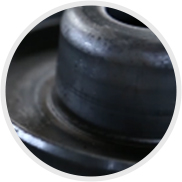 Afrikaans
Afrikaans  Albanian
Albanian  Amharic
Amharic  Arabic
Arabic  Armenian
Armenian  Azerbaijani
Azerbaijani  Basque
Basque  Belarusian
Belarusian  Bengali
Bengali  Bosnian
Bosnian  Bulgarian
Bulgarian  Catalan
Catalan  Cebuano
Cebuano  Corsican
Corsican  Croatian
Croatian  Czech
Czech  Danish
Danish  Dutch
Dutch  English
English  Esperanto
Esperanto  Estonian
Estonian  Finnish
Finnish  French
French  Frisian
Frisian  Galician
Galician  Georgian
Georgian  German
German  Greek
Greek  Gujarati
Gujarati  Haitian Creole
Haitian Creole  hausa
hausa  hawaiian
hawaiian  Hebrew
Hebrew  Hindi
Hindi  Miao
Miao  Hungarian
Hungarian  Icelandic
Icelandic  igbo
igbo  Indonesian
Indonesian  irish
irish  Italian
Italian  Japanese
Japanese  Javanese
Javanese  Kannada
Kannada  kazakh
kazakh  Khmer
Khmer  Rwandese
Rwandese  Korean
Korean  Kurdish
Kurdish  Kyrgyz
Kyrgyz  Lao
Lao  Latin
Latin  Latvian
Latvian  Lithuanian
Lithuanian  Luxembourgish
Luxembourgish  Macedonian
Macedonian  Malgashi
Malgashi  Malay
Malay  Malayalam
Malayalam  Maltese
Maltese  Maori
Maori  Marathi
Marathi  Mongolian
Mongolian  Myanmar
Myanmar  Nepali
Nepali  Norwegian
Norwegian  Norwegian
Norwegian  Occitan
Occitan  Pashto
Pashto  Persian
Persian  Polish
Polish  Portuguese
Portuguese  Punjabi
Punjabi  Romanian
Romanian  Russian
Russian  Samoan
Samoan  Scottish Gaelic
Scottish Gaelic  Serbian
Serbian  Sesotho
Sesotho  Shona
Shona  Sindhi
Sindhi  Sinhala
Sinhala  Slovak
Slovak  Slovenian
Slovenian  Somali
Somali  Spanish
Spanish  Sundanese
Sundanese  Swahili
Swahili  Swedish
Swedish  Tagalog
Tagalog  Tajik
Tajik  Tamil
Tamil  Tatar
Tatar  Telugu
Telugu  Thai
Thai  Turkish
Turkish  Turkmen
Turkmen  Ukrainian
Ukrainian  Urdu
Urdu  Uighur
Uighur  Uzbek
Uzbek  Vietnamese
Vietnamese  Welsh
Welsh  Bantu
Bantu  Yiddish
Yiddish  Yoruba
Yoruba  Zulu
Zulu rubber impact roller
The Significance of Rubber Impact Rollers in Modern Industries
In contemporary industrial applications, the efficiency and effectiveness of material handling systems are of paramount importance. One crucial component that plays a significant role in this system is the rubber impact roller. These specialized rollers are designed to mitigate the impact of heavy loads, offering numerous benefits ranging from reduced wear and tear on equipment to enhanced safety for workers.
Understanding Rubber Impact Rollers
Rubber impact rollers are typically utilized in conveyor systems and various material handling setups. Unlike traditional metal rollers, which can be rigid and unforgiving, rubber impact rollers absorb shocks and impacts, providing a cushioned surface for materials in transit. This feature is particularly valuable in industries such as mining, construction, and manufacturing, where heavy and abrasive materials are often transported via conveyor belts.
The construction of rubber impact rollers usually involves a steel core surrounded by layers of rubber. This design enables them to withstand heavy loads while still providing the necessary flexibility to absorb shocks effectively. The rubber surface is also adherent, which helps to prevent slippage of materials during transit, further contributing to operational efficiency.
Benefits of Rubber Impact Rollers
1. Reduced Equipment Wear One of the primary advantages of incorporating rubber impact rollers in conveyor systems is the significant reduction in wear and tear. Traditional metal rollers can lead to substantial damage to conveyor belts under heavy loads due to the sheer force of impact. In contrast, impact rollers cushion this impact, decreasing the risk of damage to both the rollers and the belts, thereby extending their lifespan.
2. Enhanced Safety Safety is a top priority in any industrial setting. Rubber impact rollers contribute to a safer working environment by minimizing risks associated with heavy loads. The shock-absorbing nature of these rollers reduces the likelihood of unexpected mechanical failures, protecting workers from potential injuries caused by falling materials or malfunctioning equipment.
rubber impact roller

3. Operational Efficiency Utilizing rubber impact rollers ensures smoother and quieter operation compared to rigid metal counterparts. The reduced vibrations and noise levels not only create a more pleasant working atmosphere but also enhance productivity by allowing workers to focus on their tasks without the distraction of excessive noise.
4. Versatility Rubber impact rollers are versatile and can be customized to meet specific industrial needs. They can be manufactured in various sizes and designs, making them suitable for a wide range of applications, from heavy-duty operations to lighter material handling. This adaptability ensures that industries can implement solutions tailored to their unique operational requirements.
5. Cost-Effectiveness Although rubber impact rollers may initially seem more expensive than traditional rollers, their long-term benefits often outweigh the upfront costs. By reducing maintenance and replacement expenses, decreasing downtime, and enhancing overall operational efficiency, businesses can save significantly in the long run.
Applications Across Industries
Rubber impact rollers find applications in numerous sectors. In the mining industry, they are essential for transporting minerals and ores without damaging the conveyor systems. In construction, they assist in moving materials like gravel and sand efficiently. Manufacturing plants utilize these rollers to transport various products along assembly lines, ensuring a seamless workflow.
Moreover, the agricultural sector also benefits from rubber impact rollers, particularly in the transportation of heavy crops and materials. Given the diverse range of applications, the demand for rubber impact rollers continues to grow as industries seek more efficient and safe methods for material handling.
Conclusion
In summary, rubber impact rollers are an invaluable component in modern industrial operations, offering a plethora of benefits that enhance productivity, safety, and equipment longevity. Their unique design and functionality set them apart from traditional rollers, making them a preferred choice for many sectors. As industries continue to evolve and seek sustainable and efficient solutions, the role of rubber impact rollers will undoubtedly remain instrumental in driving progress and innovation in material handling systems.
-
Revolutionizing Conveyor Reliability with Advanced Rubber Lagging PulleysNewsJul.22,2025
-
Powering Precision and Durability with Expert Manufacturers of Conveyor ComponentsNewsJul.22,2025
-
Optimizing Conveyor Systems with Advanced Conveyor AccessoriesNewsJul.22,2025
-
Maximize Conveyor Efficiency with Quality Conveyor Idler PulleysNewsJul.22,2025
-
Future-Proof Your Conveyor System with High-Performance Polyurethane RollerNewsJul.22,2025
-
Driving Efficiency Forward with Quality Idlers and RollersNewsJul.22,2025





























